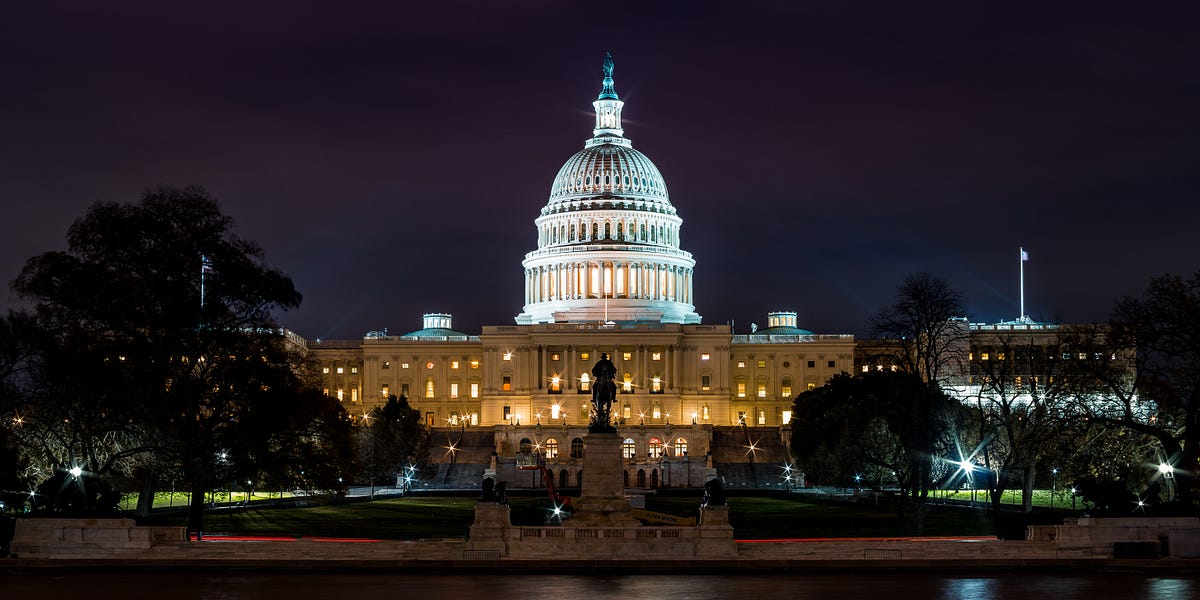Senate passes its version of 2026 NDAA amid government shutdown
The legislation passed despite the government shutdown that has stalled most of Congress’s agenda.
After a month-long amendment impasse, the Senate approved its fiscal 2026 defense policy bill, clearing the way for the House and Senate Armed Services Committees to negotiate a compromise bill.
The Senate passed the bill in a 77–20 vote late Thursday after senators agreed to vote on 17 standalone amendments, while another 48 less controversial measures were bundled into a manager’s package and adopted by voice vote.
The legislation passed despite the government shutdown that has stalled most of Congress’s agenda.
During a marathon voting session on amendments on Thursday, Republicans toppled Sen. Jeff Merkley’s (D-Ore.) proposal to require federal law enforcement officers and service members engaged in crowd control to display clearly visible identification information, such as their service branch and last name.
The Senate also rejected Sen. Tammy Duckworth’s (D-Ill.) proposal to limit military assistance to civilian law enforcement. It would have required the President to notify and submit justification to Congress for the support, and capped support at 30 days unless Congress approved an extension by joint resolution. Sen. Chris Van Hollen’s (D-Md.) amendment that would have barred the President or defense secretary from deploying National Guard units without the consent of the governor or the D.C. mayor was also voted down.
Sen. Bernie Sanders’s (I-Vt.) proposal to fund universal dental care for veterans also failed. The amendment sought to redirect 10% of the Defense Department’s discretionary budget — except for troop pay and the Defense Health Program — to the Department of Veterans Affairs to expand treatment rooms and equipment and hire additional dentists and clinicians to provide dental care to all eligible veterans.
Sen. John Curtis’ (R–Utah) amendment to modernize a pay comparability system was rejected as well.
Meanwhile, the Senate adopted Sen. John Cornyn’s (R-Texas) amendment to restrict U.S. investments that could bolster China’s technologies, such as semiconductors, AI, quantum, hypersonics and supercomputing.
Sen. Jerry Moran’s (R-Kan.) proposal to make it easier for veterans to receive care at nearby military hospitals and clinics was also approved by a voice vote.
The Senate did vote to adopt a bipartisan amendment by Sen. Tim Kaine (D-Va.) and Sen. Todd Young (R-Ind.) that repeals authorizations for the use of military force against Iraq.
An amendment introduced by Senate Majority Leader Chuck Schumer (D-N.Y.) and Sen. Richard Blumenthal (D-Conn.) that sought to prohibit spending on procuring or modifying foreign aircraft that would carry the president also failed. The proposal was the lawmaker’s attempt to block Trump from using a 747 donated by the Qatari government.
As the annual bill heads to conference, acquisition reform will be the top legislative priority for both the House and Senate armed services committees. Both versions propose sweeping changes to how the Pentagon does business, but their differing approaches mean the most significant work is still ahead as negotiators reconcile the two.
The lawmakers will also have to reconcile the difference in toplines; while the House adhered to the Pentagon’s fiscal 2026 budget request, the Senate added $32 billion above the White House request.
Copyright
© 2025 Federal News Network. All rights reserved. This website is not intended for users located within the European Economic Area.


